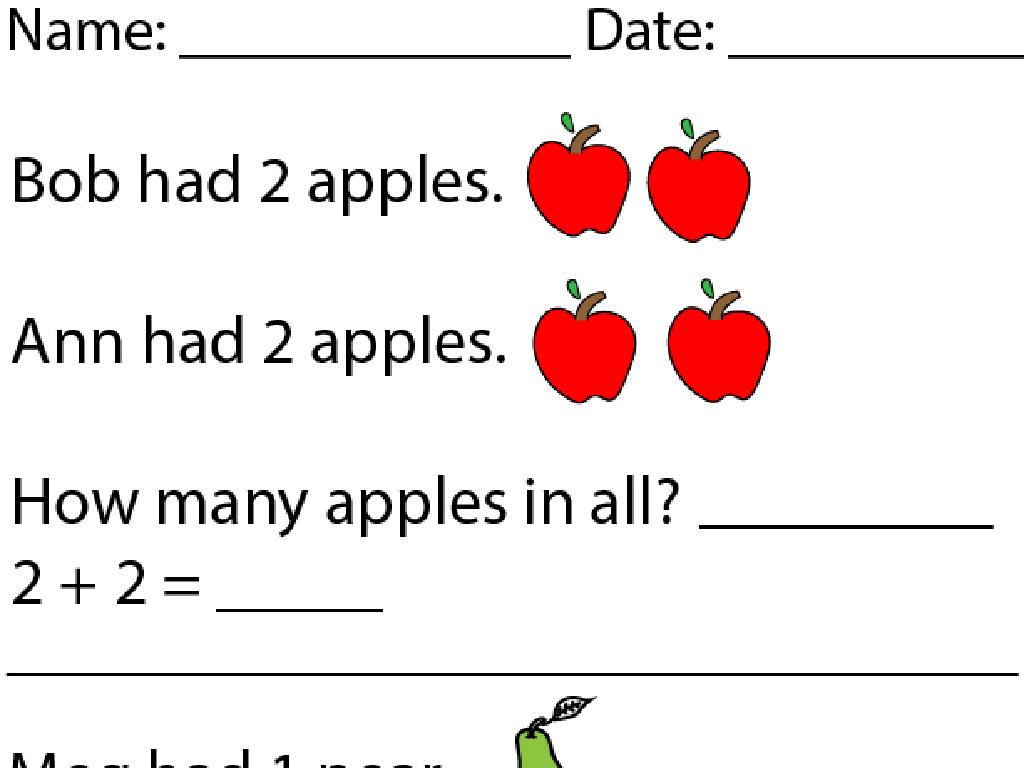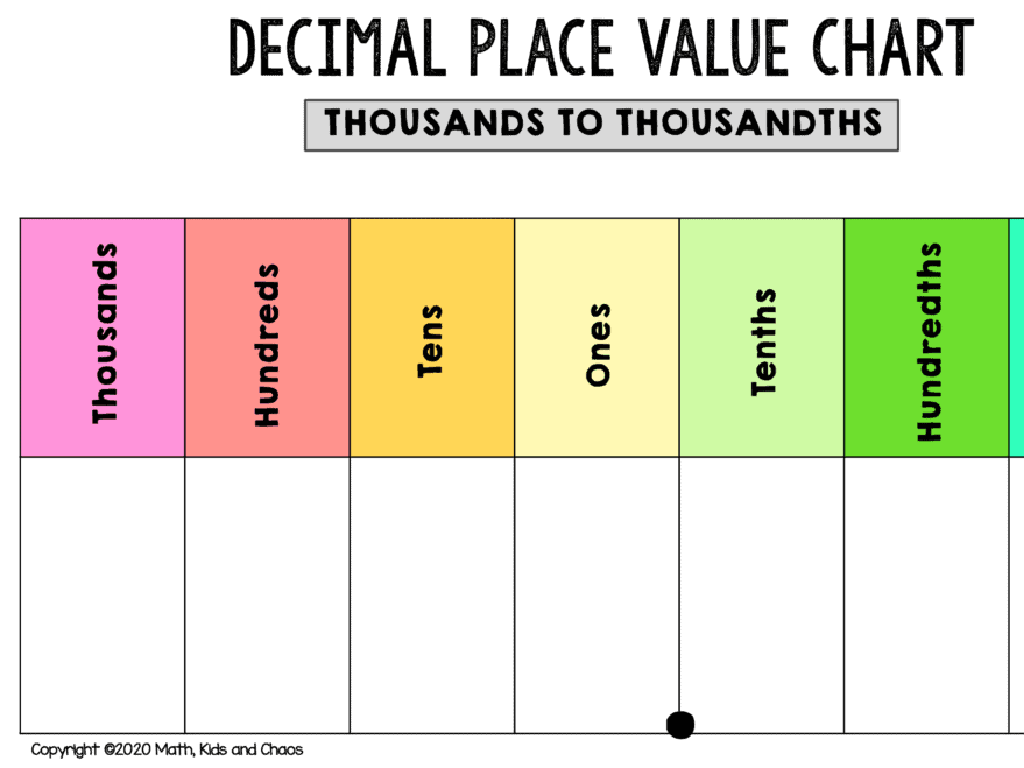Words With Mis-
Subject: Language arts
Grade: Eighth grade
Topic: Prefixes And Suffixes
Please LOG IN to download the presentation. Access is available to registered users only.
View More Content
Exploring Prefixes: The Power of ‘mis-‘
– What are prefixes?
– Prefixes are word parts added to the beginning of a word to change its meaning.
– Common prefixes: ‘mis-‘
– Examples: ‘misplace’, ‘misjudge’, ‘misinterpret’, ‘mislead’.
– Prefixes alter word meanings
– They transform the base word to convey a different meaning or nuance.
– ‘mis-‘ implies wrongness or error
– ‘Mis-‘ suggests an incorrect action or mistake, as in ‘misunderstand’ or ‘misuse’.
|
This slide introduces the concept of prefixes, focusing on ‘mis-‘ as a common example. Prefixes are an essential component of many English words and play a crucial role in expanding vocabulary. By understanding prefixes, students can deduce the meaning of unfamiliar words and enhance their language skills. The prefix ‘mis-‘ often indicates a negative action or error, which can be seen in words like ‘misinform’ (to give incorrect information) or ‘miscalculate’ (to calculate incorrectly). Encourage students to think of additional examples and consider how the prefix ‘mis-‘ modifies the base words. This understanding will aid them in decoding new words they encounter in their reading.
Exploring the Prefix ‘mis-‘
– ‘mis-‘ denotes error or wrong
– ‘mis-‘ changes a word’s meaning
– Example: ‘misplace’
– To put something in the wrong place
– Example: ‘misjudge’
– To form a wrong opinion or conclusion
|
The prefix ‘mis-‘ is a common English prefix that typically indicates a wrong action, mistake, or error. When added to the beginning of a word, it alters the original meaning to indicate something negative or incorrect. For instance, ‘misplace’ means to put something in the wrong place, suggesting an error was made in positioning it. ‘Misjudge’ implies forming an incorrect opinion or conclusion about someone or something. Encourage students to think of other words with the prefix ‘mis-‘ and discuss how the meaning changes. This will help them understand the impact of prefixes on word meaning and enhance their vocabulary.
Exploring ‘mis-‘ Prefix Words
– ‘mis-‘ prefix meaning
– ‘mis-‘ means wrong or badly, e.g., misjudge
– Nuances of ‘mis-‘ words
– ‘mis-‘ alters word meaning, indicating error
– Activity: Find ‘mis-‘ words
– Think of words starting with ‘mis-‘ and their meanings
– Share and discuss findings
– We’ll discuss how ‘mis-‘ changes these words
|
This slide introduces the prefix ‘mis-‘ and its impact on the meaning of words. Students will learn that ‘mis-‘ typically conveys a negative connotation, suggesting an incorrect action or judgment. For example, ‘misjudge’ means to judge wrongly. The activity encourages students to actively engage with the material by finding and understanding more words with the ‘mis-‘ prefix. They should consider how the prefix modifies the base word and be ready to share their words with the class. The teacher should facilitate a discussion on the nuances of each word and how ‘mis-‘ affects their interpretation. This exercise will enhance vocabulary and comprehension of prefixes.
Mastering ‘mis-‘: Constructing Sentences
– Construct sentences with ‘mis-‘ words
– Use ‘mis-‘ words like ‘misplace’ or ‘misjudge’ in original sentences.
– Comprehend ‘mis-‘ in context
– Understand how ‘mis-‘ changes word meaning within a sentence.
– Group activity: ‘mis-‘ story creation
– Collaborate to write a story incorporating ‘mis-‘ words.
– Enhance vocabulary with ‘mis-‘
|
This slide is aimed at helping students understand the prefix ‘mis-‘ and how it alters the meaning of words. Start by explaining that ‘mis-‘ typically implies something is wrong, incorrect, or inaccurate. Have students create their own sentences using ‘mis-‘ words to grasp the concept better. Discuss how context can help determine the meaning of words with ‘mis-‘. For the group activity, divide the class into small teams and assign them to write a short story that includes words with the ‘mis-‘ prefix. This will encourage teamwork and creative thinking while reinforcing their understanding of the prefix. Provide a list of ‘mis-‘ words to inspire them, such as ‘mislead’, ‘misinterpret’, ‘mismatch’, and ‘misfortune’.
The Power of ‘mis-‘: Prefixes in Literature
– Authors’ use of prefixes
– Prefixes modify word meanings, affecting the story.
– Analyze text excerpts
– Examine how ‘mis-‘ changes the meaning in context.
– ‘mis-‘ prefix in literature
– ‘Mis-‘ can indicate error or negativity, e.g., ‘misjudge’.
– Effects on meaning & tone
– ‘Mis-‘ alters interpretation, adding depth to characters & situations.
|
This slide delves into the significance of prefixes in literature, with a focus on ‘mis-‘. Prefixes are powerful tools that authors use to subtly alter the meaning of words, which in turn can change the tone or direction of a narrative. By analyzing text excerpts, students can see firsthand how the addition of ‘mis-‘ can transform a word to convey misunderstanding, mistakes, or negative attributes, such as in ‘misfortune’ or ‘mistrust’. Discussing these effects helps students appreciate the nuances of language and encourages them to consider the impact of word choice in both literature and their own writing.
Class Activity: Prefix Hunt
– Search for ‘mis-‘ words in the text
– Group contest: find the most ‘mis-‘ words
– Highlight all ‘mis-‘ words discovered
– Discuss the meanings of ‘mis-‘ words
– ‘mis-‘ often implies wrong or incorrect, like in ‘misunderstand’ or ‘misplace’
|
This activity is designed to engage students with the concept of prefixes, specifically ‘mis-‘. Divide the class into small groups and provide each with a paragraph of text. The task is to find and highlight all words that begin with the prefix ‘mis-‘. This will be a timed competition to see which group can identify the most ‘mis-‘ words. After the activity, bring the class together to share their findings and discuss the different meanings and implications of the ‘mis-‘ prefix. For example, ‘misjudge’ means to judge incorrectly, while ‘mislead’ means to lead someone in the wrong direction. This exercise will help students understand how prefixes can alter the meaning of a word and enhance their vocabulary skills.
Wrapping Up: The Power of ‘mis-‘
– Recap: ‘mis-‘ changes word meanings
– Homework: Diary entry with ‘mis-‘ words
– Reflect on your day and incorporate words like ‘misplace’, ‘misjudge’, etc.
– Use at least five ‘mis-‘ words
– Examples: ‘miscalculate’, ‘misunderstand’, ‘mislead’, ‘misinform’
– Study for upcoming prefixes quiz
|
As we conclude, remind students how the prefix ‘mis-‘ alters the meaning of words, typically indicating a wrong or incorrect action or judgment. For homework, students should write a diary entry that includes at least five words with the ‘mis-‘ prefix, demonstrating their understanding of each word’s meaning in context. Encourage creativity and personal reflection in their writing. Additionally, inform students of the upcoming quiz on prefixes, advising them to review all prefixes discussed in class. Provide study materials and encourage group study sessions for reinforcement.






